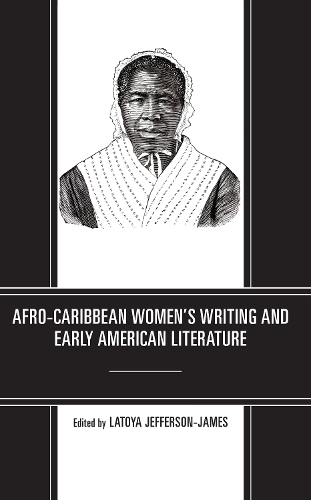
Afro-Caribbean Women's Writing and Early American Literature
(Hardback)
Publishing Details
Afro-Caribbean Women's Writing and Early American Literature
By (Author) LaToya Jefferson-James
Contributions by Tajanae Barnes
Contributions by Regis Fox
Contributions by Jacinth Howard
Contributions by LaToya Jefferson-James
Contributions by Shubhanku Kochar
Contributions by Alison D. Ligon
Contributions by Verner Mitchell
Contributions by Alexandria Smith
Contributions by Joyce White
Bloomsbury Publishing PLC
Lexington Books
12th August 2022
United States
Classifications
Professional and Scholarly
Non Fiction
808.89928709729
Physical Properties
Hardback
236
Width 157mm, Height 238mm, Spine 24mm
535g
Description
Afro-Caribbean Women's Writing and Early American Literature is both pedagogical and critical. The text begins by re-evaluating the poetry of Wheatley for its political commentary, demonstrates how Hurston bridges several literary genres and geographies, and introduces Black women writers of the Caribbean to some American audiences. It sheds light on lesser-discussed Black women playwrights of the Harlem Renaissance and re-evaluates the turn-of-the century concept, Noble Womanhood in light of the Cult of Domesticity.
Reviews
Afro-Caribbean Women's Writing and Early American Literature entices us with its title, but it delivers more than it promises. The collection covers more ground and interrogates more traditions than its name suggests. The essays in this volume engage the "work" of writers that obviously span, but the conversation the essays organize move us through the African diaspora, between realist and speculative fictions, into young adult literature, poetry, drama and journalism, to articulate black women's voice in the communal conversation of writing and the liberatory work writing both embodies and narrates. Offering new readings of old debates, the essays demand that we remember Phillis Wheatley as politically aware and philosophically astute, defamiliarizes the "artistic genius" familiars like Maria Stewart, Zora Neale Hurston and Ida B Wells as it recuperates journalist Gertrude (N. F.) Mossell and dramatists Mary Burill and Mercedes Gilbert, restores broadcaster Una Marson and recognizes to the tradition of intertextual liberatory work that is black women writers "claiming an identity they [were] taught [they should] despise". I paraphrase Michelle Cliff to emphasize this collection takes on the tough task of recalibrating the lens through which we read black women's writing not only by offering new theoretical frames but by moving us away from "theoriz[ing] Black Women's literature" through "too few examples." Whether seasoned scholar or first year English major, this volume breaks the basic rules of anthology as it anthologizes. By (re)constructing and allowing us to eavesdrop on the "dialectal beauty and richness" of conversations between African diaspora women writers, the essays in this volume take us deeper into this belletristic tradition.
--Angeletta KM Gourdine, Louisiana State UniversityAuthor Bio
LaToya Jefferson-James is assistant professor of composition and world literature at Mississippi Valley State University.
